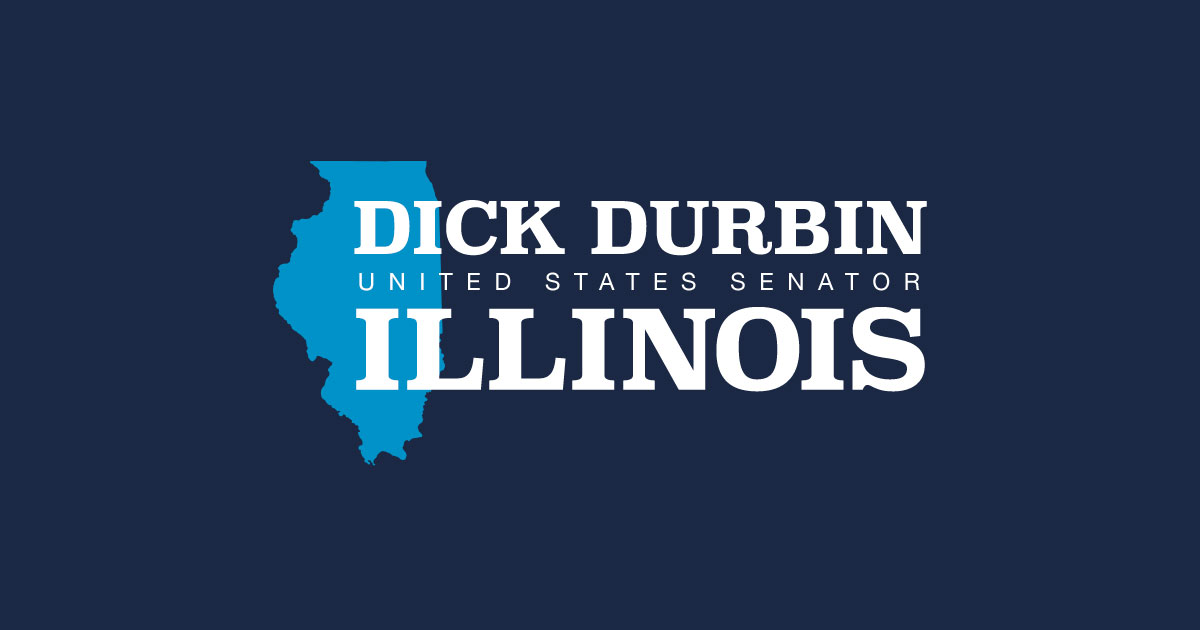Source: United States Senator for Illinois Dick Durbin
CHICAGO – U.S. Senate Majority Whip Dick Durbin (D-IL) and Illinois Attorney General Kwame Raoul today urged the Food and Drug Administration (FDA) Commissioner Dr. Robert Califf to consider the findings from Illinois’ recent $462 million settlement with JUUL and six other states, as part of the FDA’s ongoing examination of the youth vaping epidemic and JUUL’s e-cigarette application for marketing authorization.
Attorney General Raoul had sued JUUL in 2019 alleging the company marketed its harmful nicotine products to minors through aggressive and misleading promotions. As part of a settlement announced earlier this month, the e-cigarette company will be subject to stringent restrictions on JUUL’s marketing, sales, and distribution practices, in order to protect public health.
JUUL’s e-cigarettes are currently being sold without marketing authorization from the FDA, enabling children across the United States to be targeted with the addictive vaping product. On June 23, 2022, after a nearly two-year scientific review, FDA issued a marketing denial order to JUUL, after finding that its premarket tobacco product application “lacked evidence” to prove that the company’s e-cigarette was appropriate for the protection of public health. That denial was subsequently stayed by FDA on July 5, 2022, as FDA continues to review JUUL’s application.
Durbin and Raoul wrote, “The settlement provides injunctive relief to prevent JUUL from marketing and selling its products to youth through a number of restrictions. It also bolsters the depository of internal company documents that JUUL must make available. It is disappointing that it has required action by state attorneys general, rather than our primary federal regulator, to protect public health. JUUL remains one of the most popular e-cigarette brands on the market today, especially among youth.”
“We urge you to consider any relevant findings and restrictions from this case as FDA weighs important public health matters related to youth e-cigarette use,” Durbin and Raoul continued.
Durbin has slammed FDA for its continued lack of urgency as millions of children have begun using addictive e-cigarettes. For years, FDA has failed to regulate e-cigarettes—currently falling more than 19 months past a court-ordered deadline to review applications from vaping companies, and refusing to enforce the law and take action against companies marketing illegal vaping products to children.
Durbin, Chair of the Senate Judiciary Committee, recently sent a letter to Attorney General Merrick Garland and FDA Commissioner Dr. Califf urging them to enhance interagency coordination to address unlawfully marketed vaping products, and requesting more information about their enforcement efforts.
Full text of the letter is available here and below:
April 28, 2023
Dear Commissioner Califf:
On June 23, 2022, after a nearly two-year scientific review, the Food and Drug Administration (FDA) issued a marketing denial order to JUUL, after finding that its premarket tobacco product application “lacked evidence” to prove that the company’s e-cigarette was appropriate for the protection of public health. That denial was subsequently stayed by FDA on July 5, 2022.
FDA’s stay of its denial occurred more than nine months ago. Since then, JUUL has been free to continue addicting children with its unauthorized and dangerous e-cigarettes.
We write to bring your attention to a recent $462 million settlement between JUUL and six states and Washington, DC, over JUUL’s role in targeting children with deceptive marketing to addict them on vaping products. The settlement provides injunctive relief to prevent JUUL from marketing and selling its products to youth through a number of restrictions. It also bolsters the depository of internal company documents that JUUL must make available.
It is disappointing that it has required action by state attorneys general, rather than our primary federal regulator, to protect public health. JUUL remains one of the most popular e-cigarette brands on the market today, especially among youth.
We urge you to consider any relevant findings and restrictions from this case as FDA weighs important public health matters related to youth e-cigarette use.
Sincerely,
-30-
